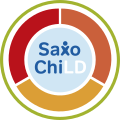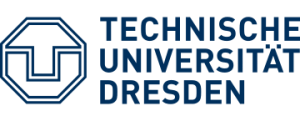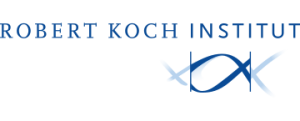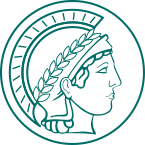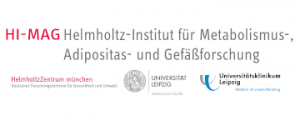SaxoChiLD capitalizes on a nationally and internationally unmatched collection of cohorts, registries, databases, and biobanks ranging from nationwide to local coverage, from population-based to clinical cases, from broad to deep phenotyping.
Population-based cohorts and registries
LIFE Child
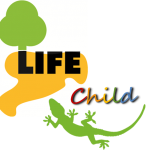 Currently, data on ~5,000 Leipzig children and their parents and siblings with ~3,500 annual examinations. Broad and deep phenotyping including under-researched areas (e.g. dental health, vision, voice and language acquisition). Study methodology ranges from state-of-the-art interviews to geo-referenced environmental data, mobile sensing, 3D body scanning, and biosampling of blood (sera, DNA, RNA, cells), urine, stool, hair, placenta, and breast milk and multiple molecular ~omic traits.
Currently, data on ~5,000 Leipzig children and their parents and siblings with ~3,500 annual examinations. Broad and deep phenotyping including under-researched areas (e.g. dental health, vision, voice and language acquisition). Study methodology ranges from state-of-the-art interviews to geo-referenced environmental data, mobile sensing, 3D body scanning, and biosampling of blood (sera, DNA, RNA, cells), urine, stool, hair, placenta, and breast milk and multiple molecular ~omic traits.LINK
CrescNet
Largest nationwide registry for anthropometrics in Europe fed by pediatric practices and clinics, active since 2004. Repeat data on 936,000 children from birth to >18 years (~5 Mill. observations) allows exploration of longitudinal trajectories and secular trends.
LINK
LINK
KiGGS
Longitudinal cohort (n=17,640) based on the nationally representative “German Health Interview and Examination Survey for Children and Adolescents”. Provides normative and reference data.
LINK
LINK
LIFE Adult
Population-based cohort study of 10,000 adults from Leipzig (baseline 2011, follow-ups 2016-2020). Broad and deep phenotyping of mainly civilization diseases complementary to LIFE Child.
LINK
LINK
Cohorts and biobanks with focused phenotyping
LINA
Longitudinal cohort of 629 mother-child pairs prenatally recruited in Leipzig in 2006-2008 with ongoing follow-up. Focus on impact of environment and lifestyle on allergy and other outcomes. Integrating observations and experimental models to decipher mechanisms. LINK
KOMPASS
Cross-sectional and longitudinal assessments focusing on physical activity and motor skills covering 60% of Leipzig’s elementary schools. Data linkage to the Public Health Authority’s school entry examinations. LINK
Child Database of the Max Planck Institute for Evolutionary Anthropology
Since 2000, Leipzig-wide registry of children from 20 elementary schools and 170 childcare centers for research purposes, used by University Leipzig.
Research and Teaching Child Care Center at the University Leipzig
Novel real-life, operational child care facility hosting 80 children throughout the year. Equipped with FaceReader, EyeTracker, and TrackLab technology for researching psychosocial interactions.
Adipose Tissue Childhood Bank at the University Leipzig
Unique collection of >560 adipose tissue samples of children (0-18 years) including clinical and biological characterization (tissue composition, adipogenic and metabolic function, inflammation, omics).
Leipzig Obesity Biobank of the Helmholtz Institute for Metabolic, Obesity and Vascular Research
Paired visceral and subcutaneous adipose tissue samples from >5,600 donors with complementary clinical metabolic (calorimetry, oral glucose tolerance tests, MRI) and biological characterization
Feto-maternal Tissue Bank at the Helmholtz-Centre for Environmental Research and Technische Universität Dresden
Large tissue biobanks including maternal blood and isolated cells, cord blood, placenta samples, placenta and mesenchymal primary cells.
Disease cohorts
Obesity Childhood Cohort at the University Leipzig
>2300 children with obesity, longitudinal follow-up to 10 years, with detailed metabolic phenotyping, including oral glucose tolerance tests.
IUGR Cohort at Technische Universität Dresden
>3,000 cases with intrauterine growth retardation followed from 10 weeks gestation. Assessment of biomarkers, pharmacokinetics, inflammatory response, and brain growth (3D-scanning data).
Interferonopathies Cohort
Cohort of >400 patients with monogenic and polygenic type I interferonopathies including biomaterial collection (blood, sera, DNA).
DGPI Registry and NAPKON
Registry of hospitalized pediatric COVID-19 and Pediatric Inflammatory Multisystem Syndrome (PIMS) patients in Germany, patient characteristics and outcomes, building a long-term cohort on sequelae.
COVID-19 Cohorts
Jointly encompassing >5400 children and ~1000 teachers from Saxonian schools and kindergartens, all actively recruiting with follow-ups, funded by the Free State of Saxony (1.95 M €).
Freder1k
Cohort of more than 60,000 newborns in Saxony screened for risk genes in type 1 diabetes.
LEAP
Accelerated longitudinal cohort of autistic individuals aged 6-30 years compared to typically developing, age-matched individuals; includes a group with mild to moderate intellectual disability. LINK
